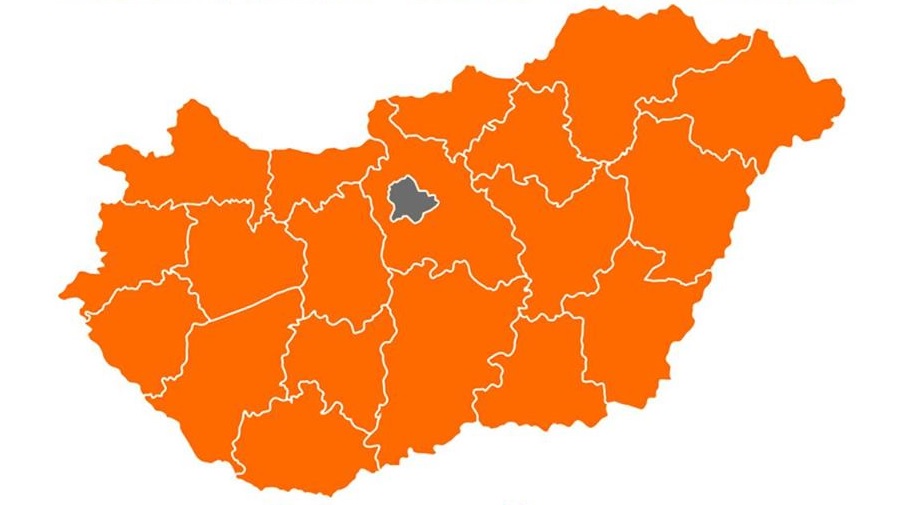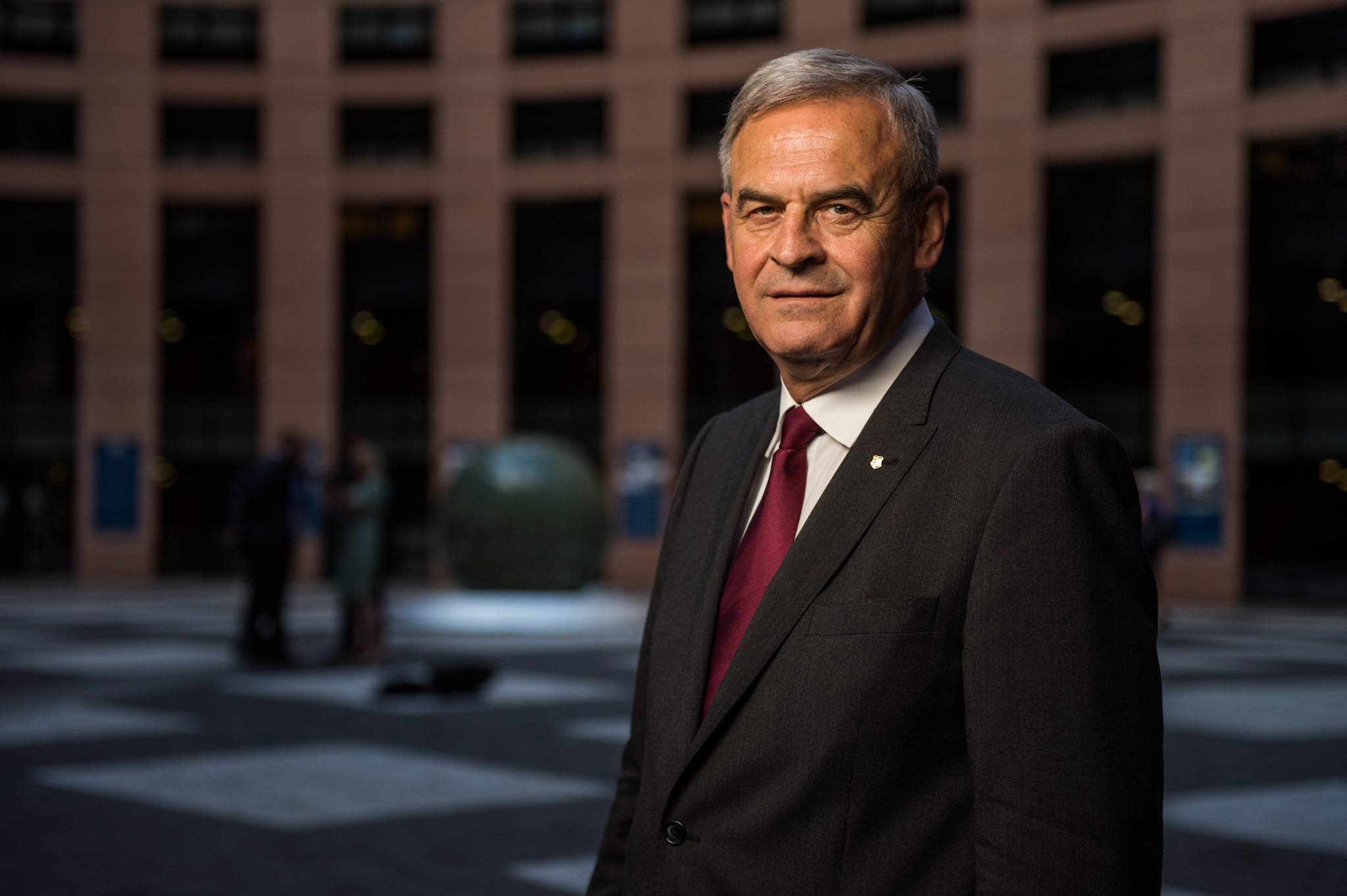Hungary – Sunday, October 13, residents of Hungary voted to elect their mayors and municipal or county councilors. If Viktor Orbán’s Fidesz won the vote on the national scale, it lost the capital city, Budapest. A turning point in the reign of Orbán?
Bitter orange
Viktor Orbán’s Fidesz can boast of having won national elections again, but these elections left a bitter taste in its mouth. Hungarians and other residents registered as permanent residents – they are about 140,000 – voted on Sunday, October 13, 2019, to choose their mayors and county councilors, and in Budapest, to choose the mayor of the city, those of the districts, and their municipal councilors.
Nationwide, Fidesz has won an indisputable victory: the populist Viktor Orbán’s party retains its overwhelming majority in the county councils, and retains the majority of the “cities with county rights”, that is, the main cities of the country: 13 of the 23 cities with county rights have been won by Fidesz – instead of 20 in 2014.

In smaller towns, the results of Fidesz are brighter. The opposition between the countryside and the metropolis emphasizes the dichotomy between liberals and illiberals, like in all other Western countries, where clashes liberal / illiberal, conservative / progressive, sovereignist / Europeanist, localist / globalist and downtown / countryside are overlapping more and more clearly.
Fidesz and Viktor Orbán are no exception to the Zeitgeist. But while the Hungarian campaign is en bloc behind the Christian Democratic government party, Budapest returned to the fold of the Liberals, after a parenthesis of 9 years in the hands of outgoing mayor István Tarlós, 71, who ran once again at the request of Viktor Orbán himself, and who appeared to be relieved not to have to hold the town hall five more years.
A blow for the government: in its tourism development strategy, Budapest is a key element that has since 2010 a development unseen since the Belle Epoque. The good understanding based cooperation between the government and the mayor is coming to an end. “We are ready for cooperation,” however reassured the Hungarian Prime Minister on Sunday evening, who saluted the result of the left and underlined the vitality of Hungarian democracy. Very soon after the announcement of the results, the expert on the set of public television M1 explained that there will be no sabotage or revenge on the part of the government towards Budapest: one understands that Orbán’s position is delicate and a form of cohabitation will have to take place necessarily.
“Christmas in October”
The left-wing ecologist candidate Gergely Karácsony – his family name meaning “Christmas” in Hungarian – chosen by the united opposition at the beginning of the summer during unprecedented primaries, is a well-known figure on the Hungarian political scene. The 44-year-old teacher, sociologist and political scientist, has made a name for himself thanks to the left-wing micro-party Dialogue for Hungary (Párbeszéd Magyarországért, PM), an ally of the Hungarian Socialist-Liberal Party MSZP. Mayor of the 14th district of Budapest since 2014, he was head of the MSZP-PM coalition in the legislative elections of April 2018, which obtained 11.91% of the votes. He did not keep his mandate as an MP in order to remain mayor and prepare for the municipal election of 2019.
While almost unanimous opposition parties had envisioned a union to defeat Fidesz in 2018, inspired by the victory of Péter Márki-Zay in a partial local election few weeks earlier, the common front did not take place, and Fidesz won for the third time in a row a legislative victory with a constitutional majority.

The opposition, in crisis after this debacle, was able to dialogue and organize itself so as to constitute a common front in Budapest and in many cities, with for common ground the anti-orbanism, mobilizing the troops with a rhetoric of secession and using methods of social engineering. A tactic that has paid off, rewarding the efforts and calculations of the opposition with the mayor of Budapest and 7 new cities out of 23. A surprise for many, since none of the poll agencies predicted the fall of Budapest.
But holding Budapest will also be a challenge for the united opposition – about “united”: will it remain united after the elections? Will it manage to continue her cooperation without a close election deadline? will it be able to go beyond anti-Orbanian rhetoric and prove to be able to act? what will happen with the formerly far-right Jobbik within this rainbow coalition?
The end of an unbearable campaign
The repeated successes of Viktor Orbán and the failures of the opposition, helpless against the Fidesz steamroller since 2010, led the opposition to opt for a tactic of sabotage rather than of conquering power. In this perspective, the anti-government press, still dominant in the country despite the attempts of Orbán and his friends to strengthen their position in the media, began from 2015 – the crisis of the Balkan Route being the point from rocking – to sinking into aggressive anti-orbanism. A game that the government has agreed to take part in. For 4 years, Hungarian politics has spectacularly crystallized around two enemy poles and which have become increasingly violent in their respective campaigns.
The posters of each camp mocking the opponents have swarmed, the activists of each camp have disrupted the events of the opponent camp. Karácsony was attacked for his mismanagement of the 14th district and his complacency with the “parking mafia”, designating private companies enriching themselves with urban parking. And finally this led to several scandals ostensibly prepared in advance which erupted during the last weeks of the campaign. Sound recordings and videos from both sides with sordid details: drugs, prostitutes, corruption, misappropriation of public funds, embezzlement, and so on.
If the first recordings were about personalities of the left (Wittinghof, Lackner), including a recording of Gergely Karácsony in which he is harshly criticizing his socialist partners and recognizes their theft and embezzlement, as well as the difficulties he had in managing them, the recording which made the biggest waves – with the active help of foreign media – is the scandal of Győr’s mayor, Zsolt Borkai. Indeed, an anonymous blog – the author presents himself as a corrupt lawyer seeking revenge – has posted footage and videos of the mayor with prostitutes on a yacht in Croatia. But more important: accusations have been made against the mayor concerning embezzlement and traffic of influence.
This case, the latest in chronological order, served as an example for the opposition to illustrate its anti-corruption rhetoric – though while being quite silent about the corruption of its own members. And eventually, each one of the attacked candidates…won.
All this has helped to make the campaign no more than a war on image rather than being about projects or ideas. Fidesz tried to play the immigration card again, accusing the left-wing candidates of wanting to bring in migrants, while on the other hand, the main argument of the opposition was to “not let Fidesz win” and “get rid of Orbán”.
Despite this, the turnout was relatively high, at least compared to the last two local votes. In 2006, 53.12% of voters voted, but in 2010 they were 46.64% and in 2014 only 44.30%. This year, 48.57% of voters went to the polls.




